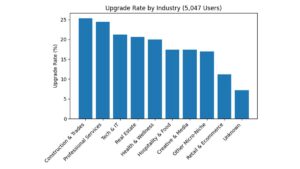Who This Is For and Why You’re Here
If you’re a small business owner or freelancer, you’ve likely spent too much time chasing lost receipts or reconciling paper trails. You need a paperless accounting system that saves time, cuts errors, and works as your central bookkeeping hub.
This article shows you how to move from paper to digital bookkeeping using SparkReceipt. You’ll learn how to digitize records, automate expense tracking, and collaborate with your accountant – all without complicated software or steep learning curves.
The Real Cost of Paper-Based Accounting
- Manual entry steals hours and introduces avoidable errors.
- Receipts get lost, which hurts deductions and audits.
- Paper files do not scale; they slow down reporting and cash flow.
- Storage, printing, and rework costs add up quickly.
You came for a fix, not a lecture. Let’s move.
What Paperless Accounting Really Means
A paperless accounting system replaces messy folders with a streamlined digital process. Using SparkReceipt, you can:
- Snap a photo of any receipt or invoice.
- Let AI extract all details automatically.
- Categorize expenses instantly.
- Invite your accountant to access your records for free.
Everything stays organized, searchable, and backed up in the cloud – giving you total control and visibility.
How to Choose the Right Paperless Accounting Software
When choosing paperless accounting software, look for tools that are intuitive, reliable, and designed for small businesses. SparkReceipt was built for exactly that: simplicity, accuracy, and teamwork.
Why SparkReceipt Fits the Bill
- Simple to use: No accounting degree needed. Just snap, scan, and review.
- AI-powered: Automatically extracts key data such as merchant name, total, tax, and date.
- Collaboration-ready: Invite your accountant to your workspace for free. They can review, tag, and export data anytime.
- Cloud-based: Access your records anywhere, anytime, without fear of losing data.
- QuickBooks Online integration: Export your transactions directly if your accountant prefers working in QuickBooks.
With SparkReceipt, you get one platform to manage your receipts, expenses, and bookkeeping records – without the clutter or confusion.
Step-by-Step: Transition to a Paperless Accounting System
Step 1: Assess Your Current Process
Map how you currently collect and store financial data. Identify bottlenecks: manual entries, misplaced receipts, or missing invoices. These will be the first things SparkReceipt fixes.
Step 2: Digitize Your Existing Records
Start by scanning your current receipts and invoices with the SparkReceipt app. You can upload up to 50 documents at a time via the web application. The system will automatically:
- Extract all details (vendor, amount, tax, and currency).
- Categorize expenses intelligently.
- Store them securely in the cloud.
Tip: Begin with recent documents to see results fast, then backfill older records gradually.
Step 3: Organize and Categorize Automatically
Once your records are in SparkReceipt, use its built-in AI to group them by category – such as travel, office expenses, or software subscriptions. You can create or edit custom categories, ensuring reports fit your exact needs.
Step 4: Collaborate with Your Accountant
Invite your accountant to your SparkReceipt account for free. They can:
- View and download all your receipts and invoices.
- Export categorized data into QuickBooks Online or their preferred format.
- Prepare reports or filings using verified, organized records.
You stay in control, while your accountant saves time on manual work.
Step 5: Establish a Weekly Routine
To stay consistent:
- Capture receipts right after each purchase.
- Review and confirm categories weekly.
- Share updates with your accountant before month-end.
This rhythm keeps your bookkeeping current, accurate, and stress-free.
Avoid These Common Paperless Accounting Mistakes
- Going all in at once: Start with your latest month and work backward.
- Skipping habits: A system is only as good as your routine.
- Ignoring team onboarding: Show anyone handling expenses how to upload and categorize receipts.
- No audit trail: Always attach the source image to each record.
- Neglecting review: Even automation needs oversight – check reports monthly.
Why SparkReceipt Is All You Need for Digital Bookkeeping
- Automatic data capture: Scan receipts and invoices instantly.
- Accurate categorization: AI organizes expenses for you.
- Real-time collaboration: Invite your accountant to manage records directly.
- Cloud storage: Access your financial data from anywhere.
- Effortless exports: Share reports or send data to QuickBooks Online if needed.
With SparkReceipt, bookkeeping is simple, fast, and error-free – no spreadsheets, no paper, no stress.
Conclusion: One Tool, One Workflow, Zero Paper
Paper is slow. SparkReceipt is fast. Go fully digital with paperless accounting software that simplifies every part of bookkeeping. Capture receipts instantly, collaborate with your accountant in real time, and stay audit-ready all year long.
Make your books as smart as your business. Start for free today.




